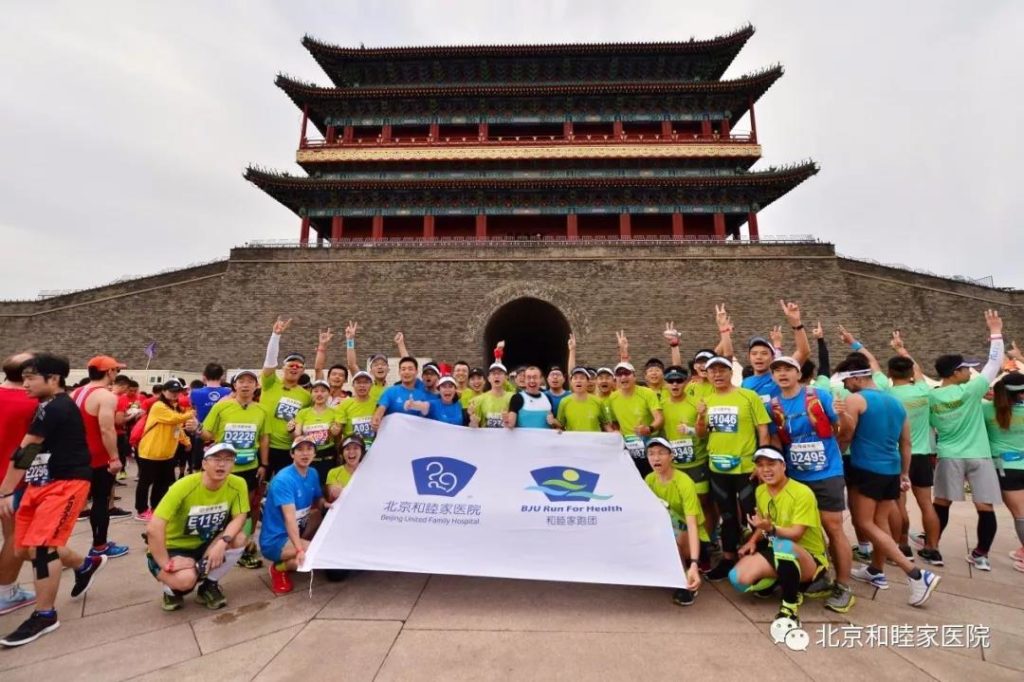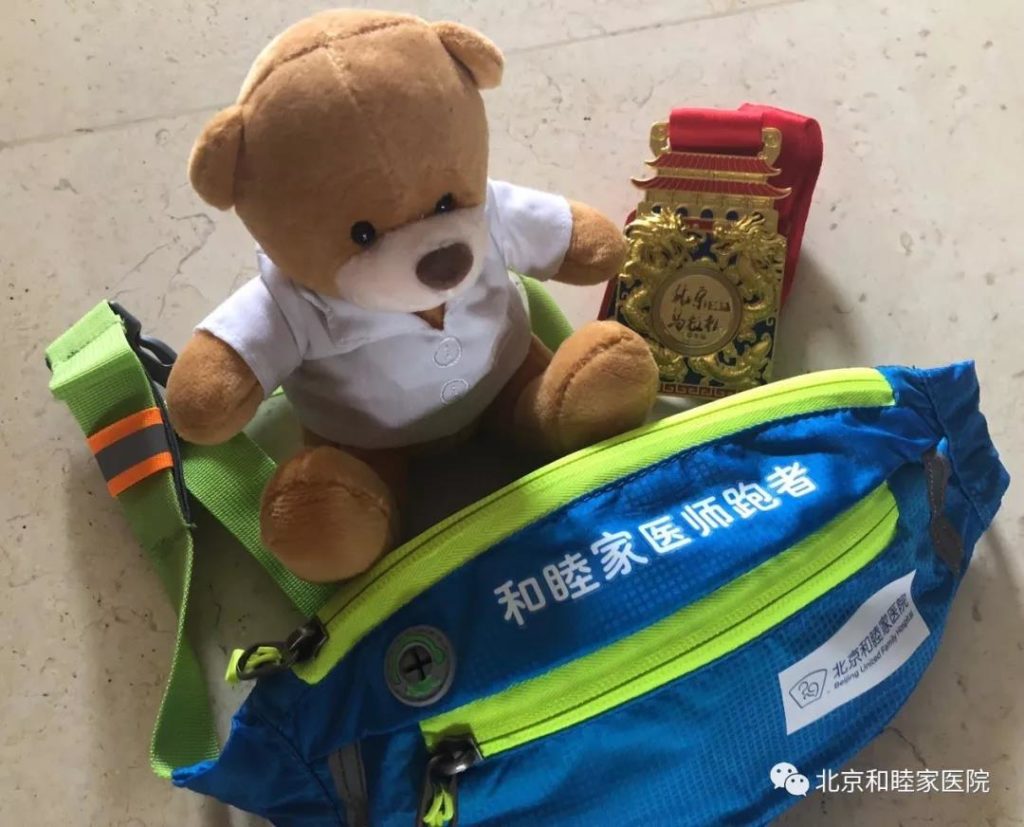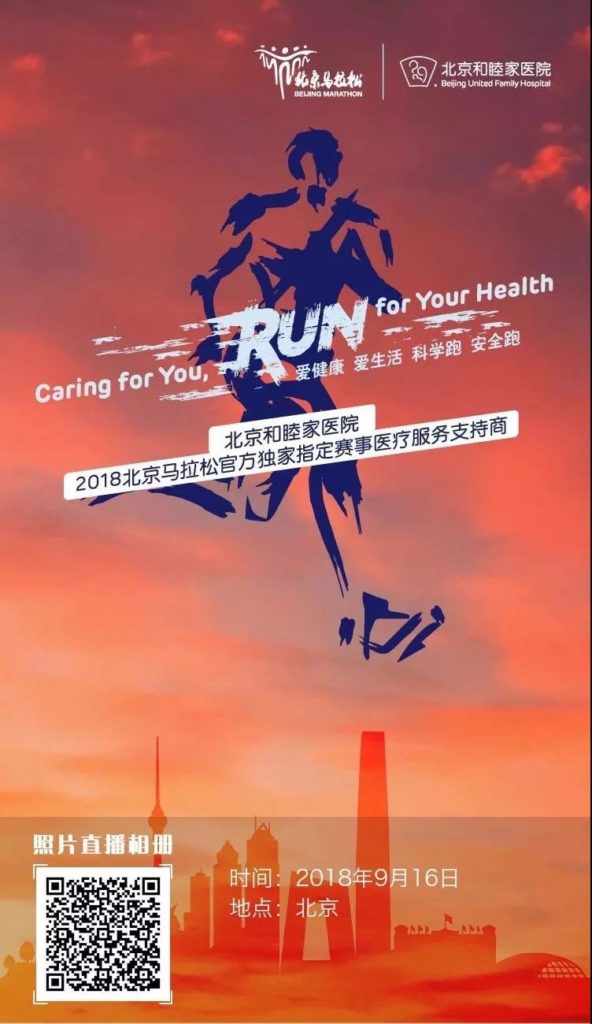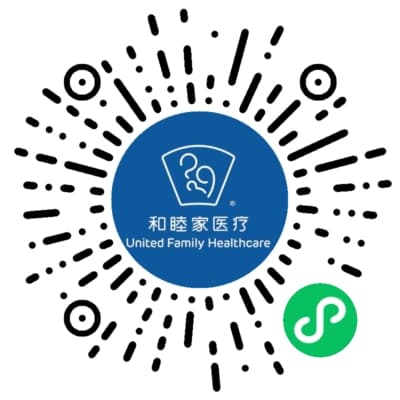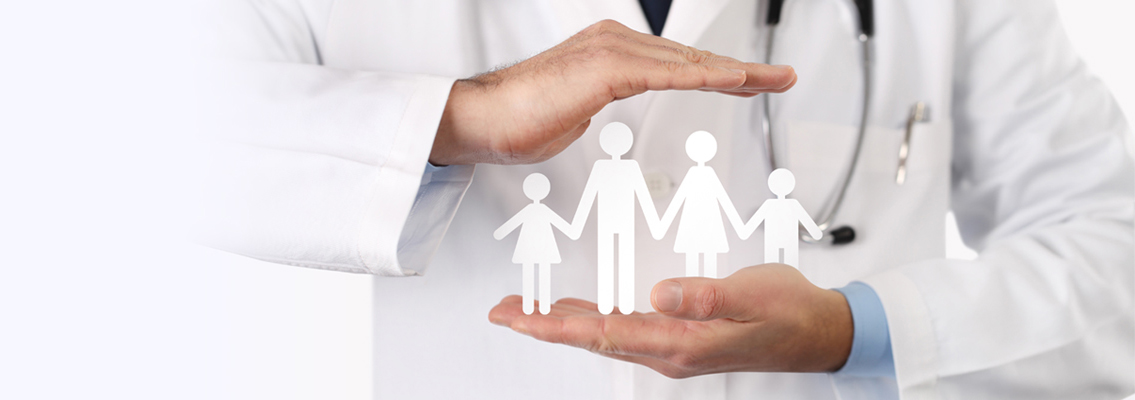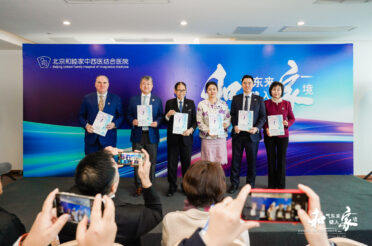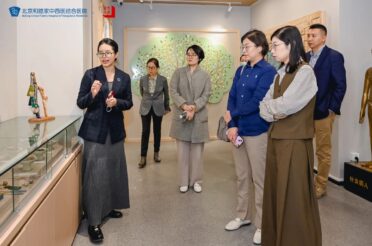
At 7:30 on the morning of September 16, 2018, the sound of gunshots announced the beginning of 2018 Beijing Marathon, engaging 30,000 runners from 42 countries and regions on a journey of challenging themselves and creating a new marathon record that started at Tiananmen Square and ended at the National Stadium in northern Beijing.

Beijing Marathon this year boasted a total of 111,793 entry applications, registering an increase of 13,106 or 13 percent compared with the previous year. This is also the first time that the number of entry applications exceeded 110,000. Featuring 30,000 amateur runners from all over the world, today’s Beijing Marathon is different from the first Beijing Marathon held 37 years ago, involving 86 professional athletes from 12 countries and regions. On the occasion of the tenth anniversary of the Beijing Olympics and the upcoming 2022 Winter Olympics in Beijing, the Beijing Marathon 2018 has been hailed as a “national marathon” and has attracted more attention and higher expectations. This is more a demonstration of Beijing’s name card than a carnival of 30,000 runners.
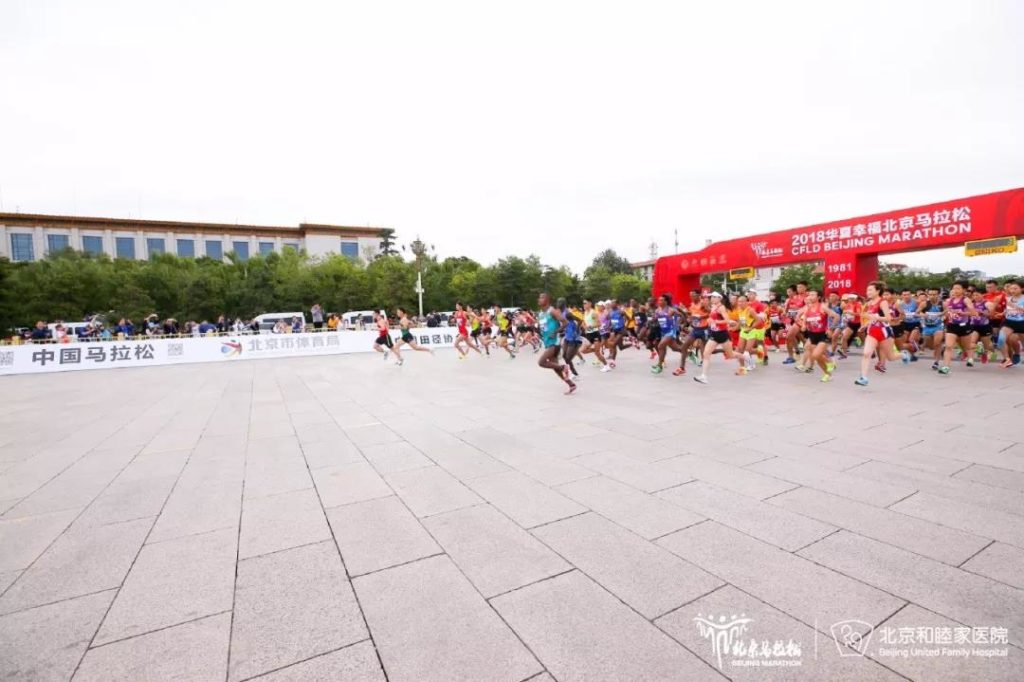
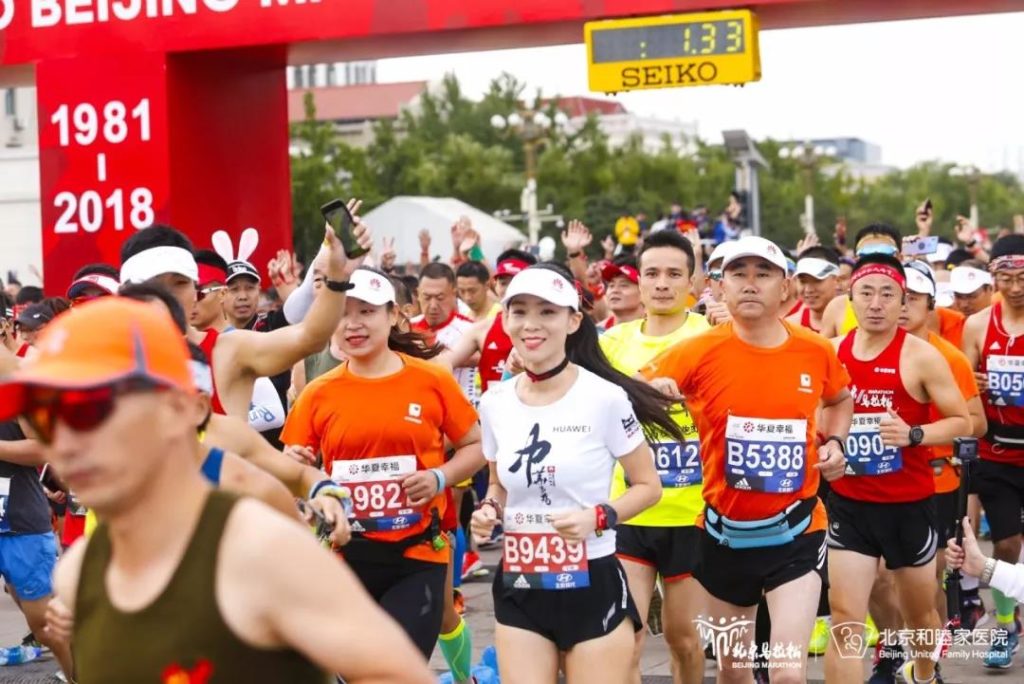
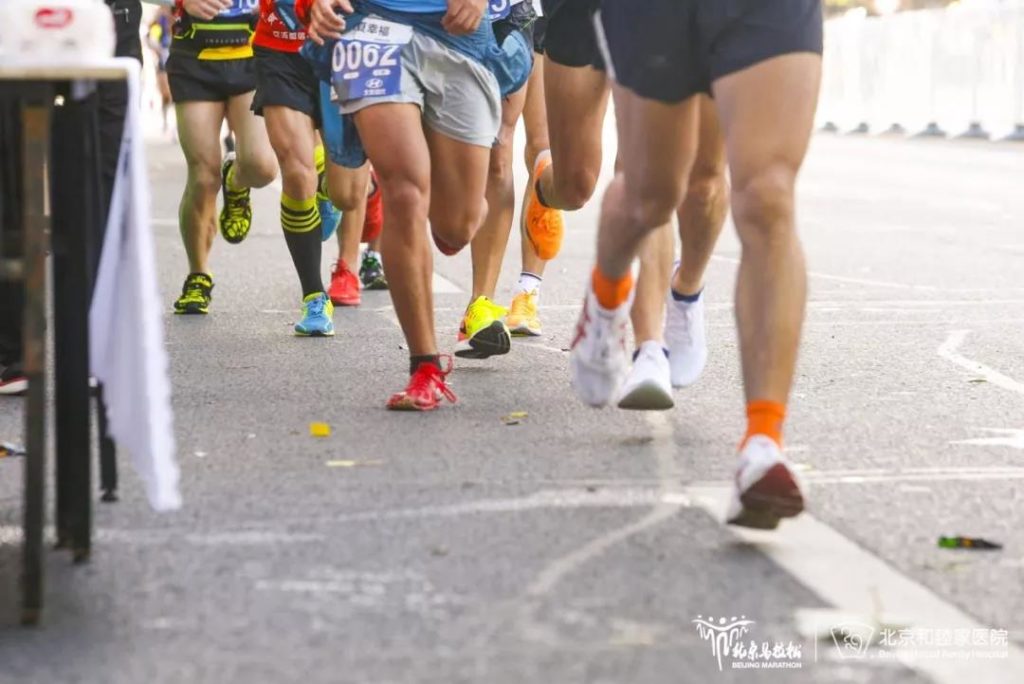
Beijing Marathon has been supported and assisted by the health authorities from the very beginning. As the official exclusive medical service supporter for Beijing Marathon for five consecutive years, Beijing United Family Hospital has sent a team of nearly 200 people to the Beijing Marathon this year. Under the unified command and leadership of Beijing Municipal Commission of Health and Family Planning and in collaboration with the “120” emergency medical service system, we are committed to providing medical care services and assistance to help improve the medical care system for Beijing Marathon.
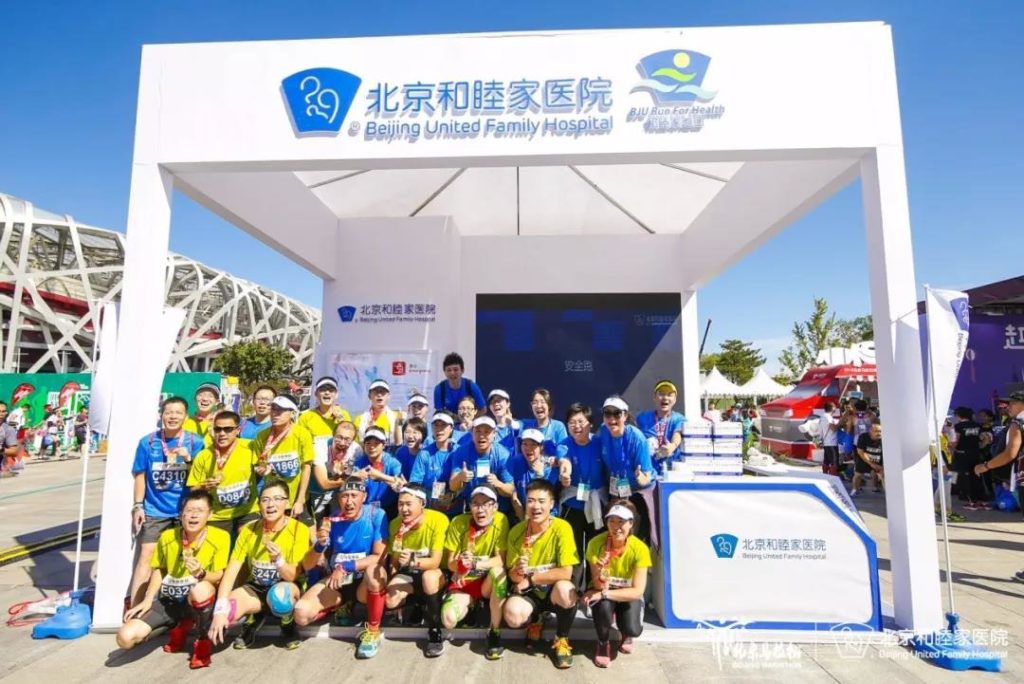
Twelve medical service stations were set up along the whole course, featuring enhanced healthcare services with more investment in medical materials.
This year United Family Healthcare set up 12 medical service stations along the racing route and at checkpoints to guarantee medical care along the entire race route and provide scientific post-race rehabilitation and stretching services to the runners. Given that the runners in an extreme sport like the marathon have a higher risk in the second half of the race, more medical service stations were set up accordingly, with seven out of the ten service stations along the racing route set up at an interval of 2.5km starting from the 25km-point of the race, with a view to enhancing medical services during the second half of the race.
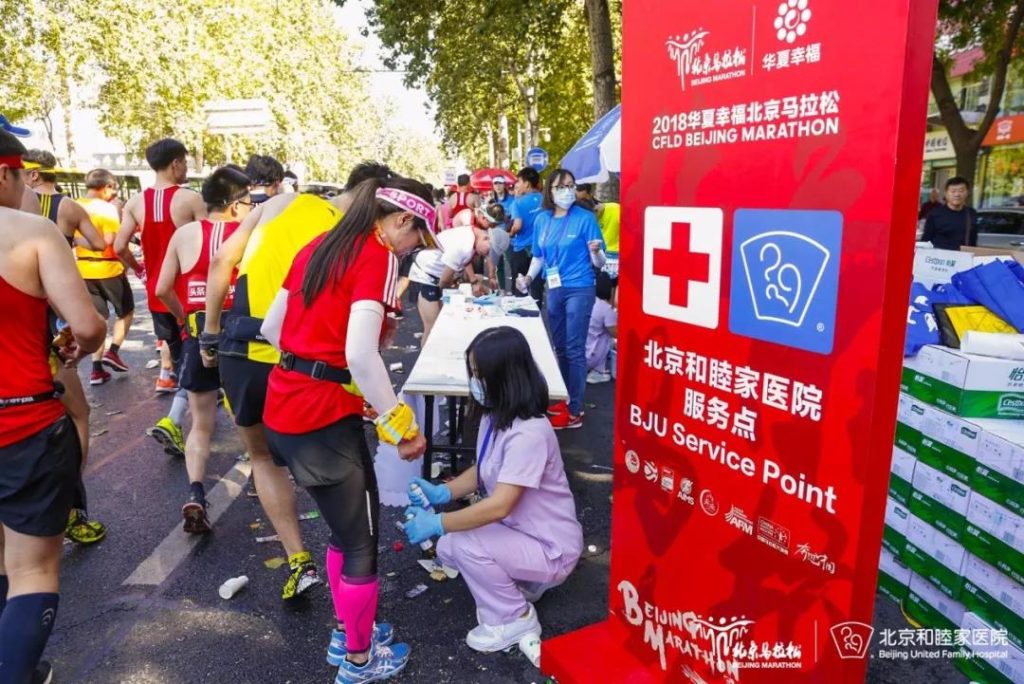

This year, the medical security for Beijing Marathon has been further enhanced with one more medical volunteer at an interval of 50 meters starting from the 30km-point of the race. United Family Healthcare has offered an additional 200 packages of medical supplies to these volunteers, including lidocaine chlorhexidine aerosol, band-aids, alcohol prep pads, iodophor cotton swabs, among others.
According to initial statistics, roughly 3,300 runners, including three critically ill runners, received help from the United Family Healthcare medical service stations. The number of runners in the Beijing Marathon shows an improving overall quality of the runners and proves that public recognition of the concept of “running for health” is in perfect harmony with United Family Healthcare’s original intention of popularizing sports knowledge about the Beijing Marathon.

In addition to the ten medical service stations along the route, United Family Healthcare set up a special area for stretching services at the checkpoints and arranged four professional rehabilitation and stretching therapists to provide free services to runners. At the same time, other medical volunteers helped with other common problems like cramps, bruises, and blisters.
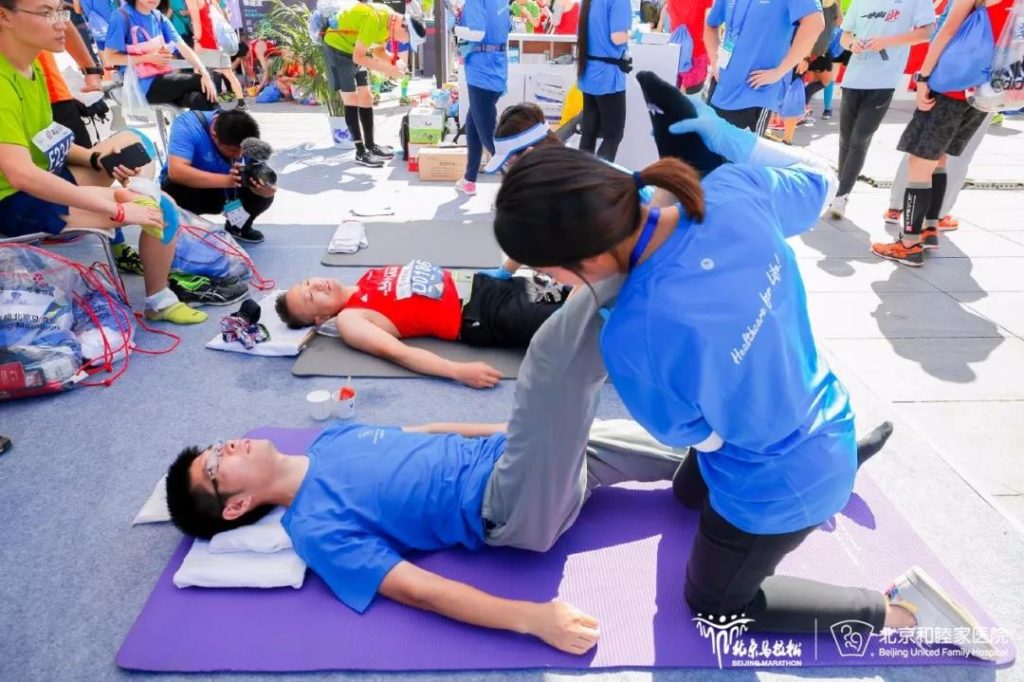
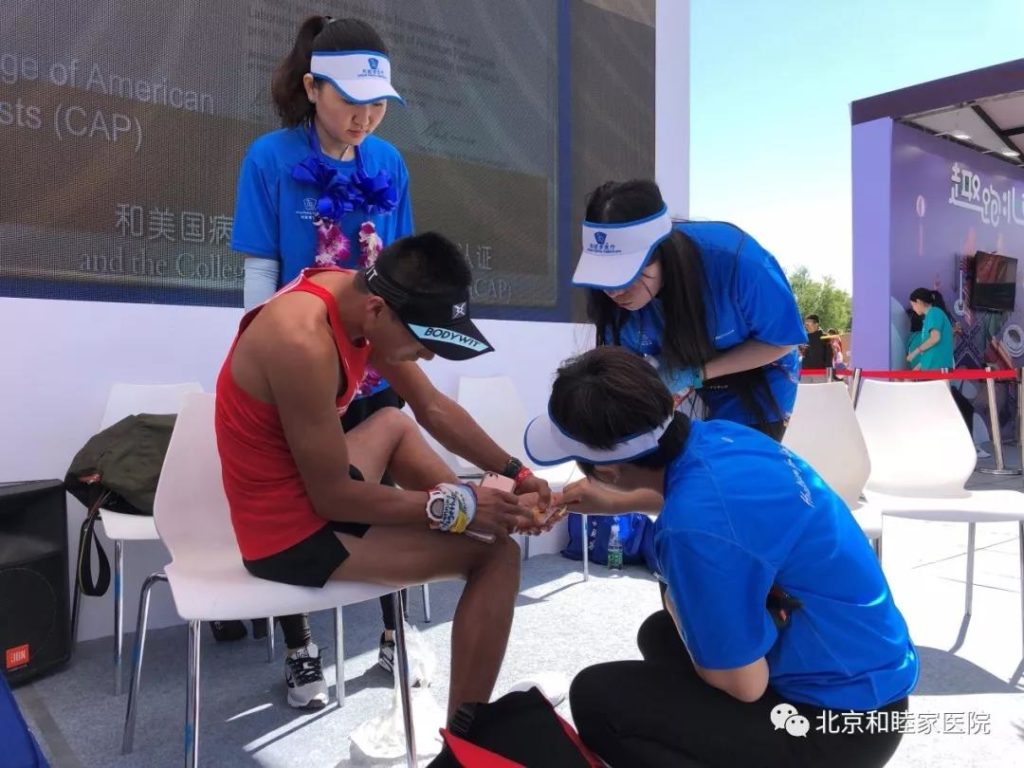
A growing team of “physician runners” provided all-out help whenever and wherever possible.
In a race of 42.195 kilometers, runners are likely to feel discomfort at any time and at any place. If the runner felt discomfort at a place far from the medical service station, a physician nearby would provide emergency treatment and play a significant role. In a bid to give full play to the role of physician runners, Beijing United Family Hospital has begun to recruit physician runners from all over the country since the opening of registration for the Beijing Marathon this year. Finally, a total of 30 physicians were selected for the team of physician runners to provide Beijing Marathon runners with help whenever and wherever possible.
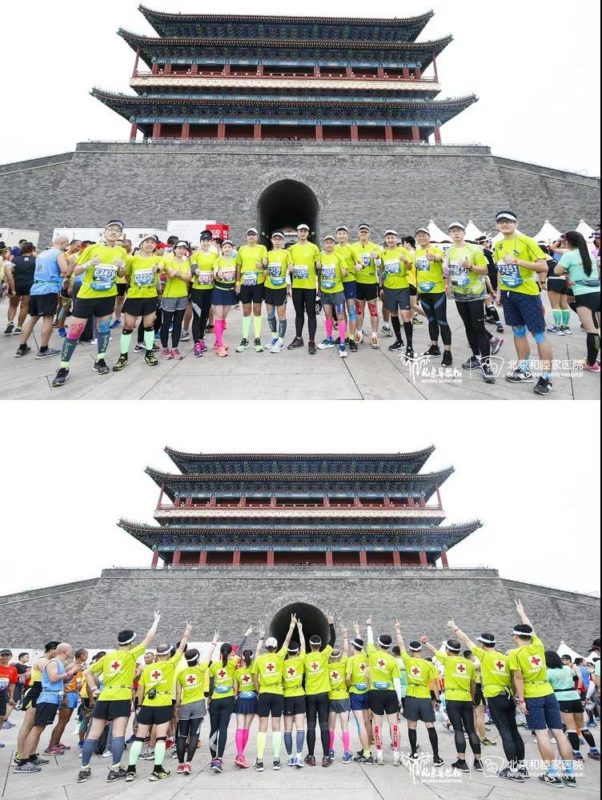
This year the UFH team of physician runners were composed of both experienced runners and newly selected ones from the Heart Center, Emergency Department, ICU, Surgery Department, Rehabilitation Medicine Department, Family Medicine Department, and other departments from over ten top 3A hospitals, including Peking Union College, Medical College Hospital, Peking University Third Hospital, Beijing Anzhen Hospital, China-Japan Friendship Hospital, and The Second People’s Hospital in Shenzhen. In addition to rich first-aid experience, all of them had previously completed a full marathon in three to six hours. They were arranged in all zones ranging from A to F, to deliver services to as many runners as possible.
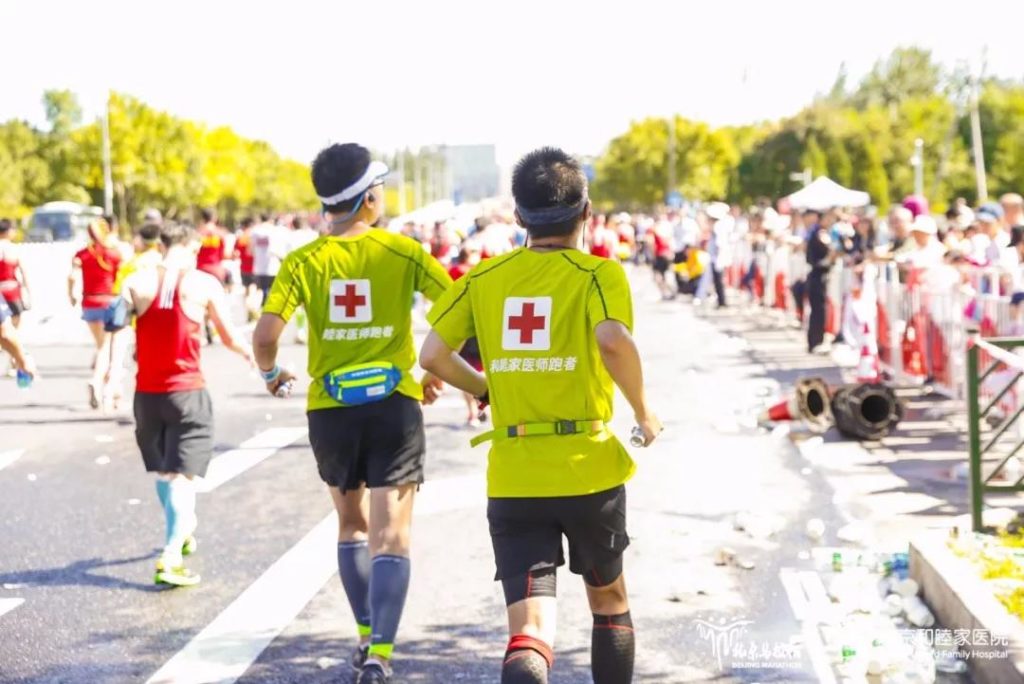

The physician runners are responsible for providing medical services to runners along the entire race route with lidocaine, alcohol prep pads, iodophor cotton swabs, band-aids, and other medicine that they carry around. Furthermore, they’re responsible for identifying and discovering the first symptoms of dehydration, fainting, heart attack and others, and timely assistance. Statistics show that physician runners provided nearly 200 runners with emergency treatment for skin trauma, strained sprains, muscle spasms, among other ailments.
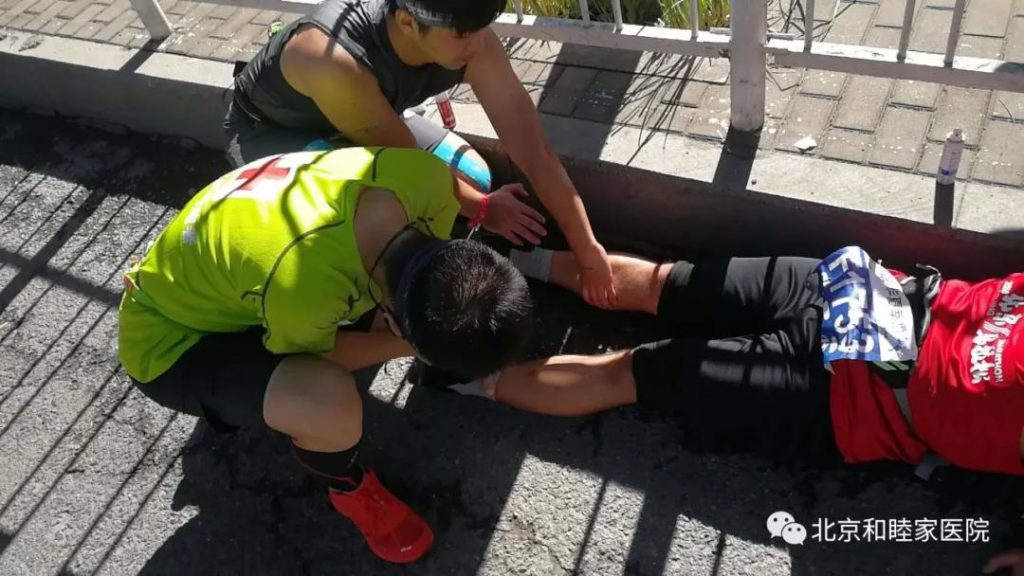
Each physician runner has the dual identity of physician and runner. Whenever and wherever someone needs help, they would make all-out efforts to provide help regardless of personal interest. In the 2018 Beijing Marathon, when most runners had left the finish zone, there came a sudden call via the intercom, claiming that a runner who just crossed the finish line had a low heart rate and was calling for the help of a senior physician from the UFH team. Mr. Yang Geng, associate chief physician with the Emergency and Critical Care Center of Beijing Anzhen Hospital, returned immediately in spite of his own leg pain to rush to the scene together with Ms. Hou Yan, the director of the Nursing Department of Beijing UFH, and provided timely and proper treatment and saved the runner from a dangerous situation.
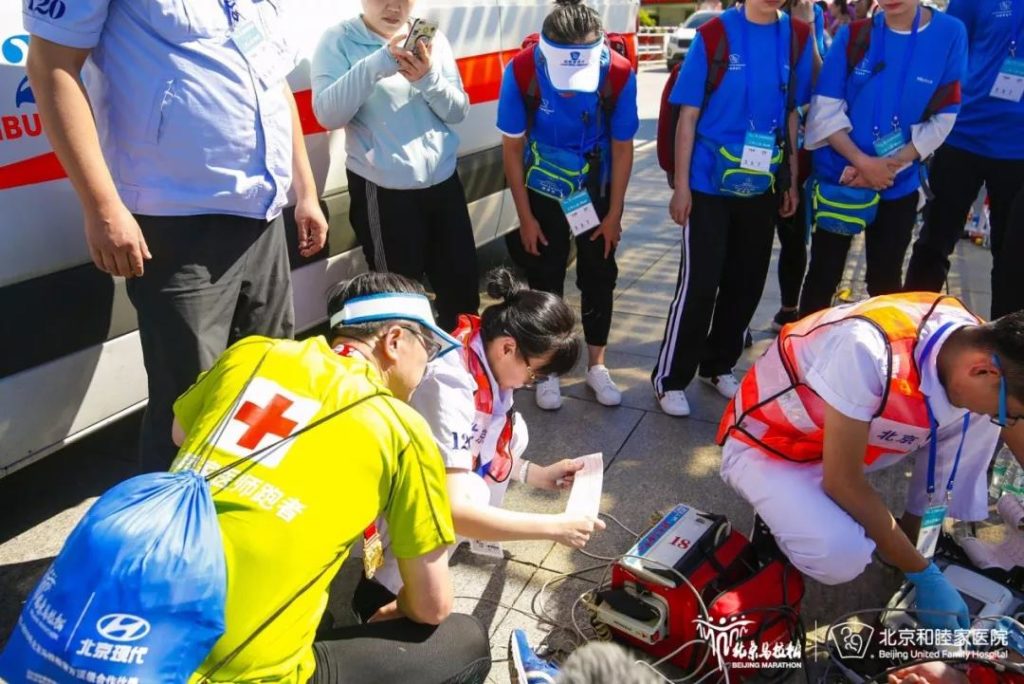
Due to constant stopping to help others during the race, these physicians didn’t achieve their personal best results, but they have contributed to a safe and secure Beijing Marathon and helped other runners achieve their personal best results.
AED volunteers on call as whole-hearted guardians
In the 2014 London Marathon, a 42-year-old man collapsed after completing the race and died in spite of emergency treatment. In the 2011 Chicago Marathon in October, a 35-year-old American man collapsed and died 500 yards from the finish line. In the New York City Marathon in November 2008, a Brazilian runner named Carlos Jose Gomes complained about feeling ill just after passing the finish line and died although he was sent to the Manhattan hospital immediately. In the extreme sport of marathon, sudden death is the biggest danger facing the runners. Reports say that over 90 percent of accidental deaths in the aftermath of marathons are caused by heart problems, most commonly abnormal ventricular fibrillation which requires immediate defibrillation. The survival rate reduces by 7 to 10 percent for a delay of every one minute and ten minutes later, there will be a slim hope of survival.
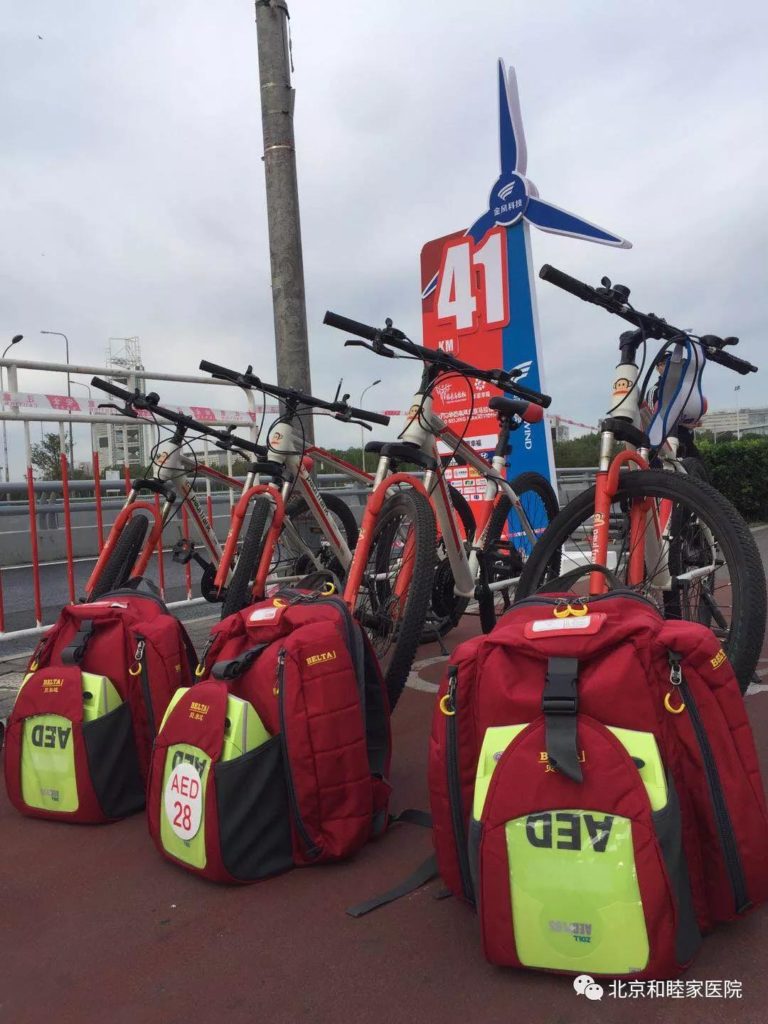
Prompt defibrillation is by far the most effective way to stop sudden cardiac death. AED is a user-friendly emergency device that can be used by medical staff to defibrillate patients with heart attacks and help patients with ventricular fibrillation recover heart rhythm.
Prior to the 2018 Beijing Marathon, UFH selected 50 health care workers with the American Heart Association Basic Life Support certification as the AED volunteers and organized three professional training courses on the AED applications to ensure that all the AED volunteers are proficient in using the AED device designated by the organizing committee and could provide timely and effective emergency rescues in collaboration with 120 emergency number system.
On the day of the Beijing Marathon, all the AED volunteers gathered at 5:30 in the morning and had taken their own places by 7:00 in the morning, fully prepared for work.
The AED volunteers were evenly distributed by a distance of nearly 3km from the 15km-point to the destination zone. They came back and forth by bicycle or foot within a range of one kilometer to inspect, discover, follow, and rescue the high-risk runners with symptoms like severe heatstroke, unconsciousness, and ventricular premature contraction, or talk them out of the race, in a bid to ensure every runner could run into the next station safe and sound. This means that the volunteers at the destination section had to carry the AED device weighing about 5kg on an inspection tour by foot for at least 8 hours. After the marathon finished, they needed to closely observe the state of runners for some time before calling it a day.
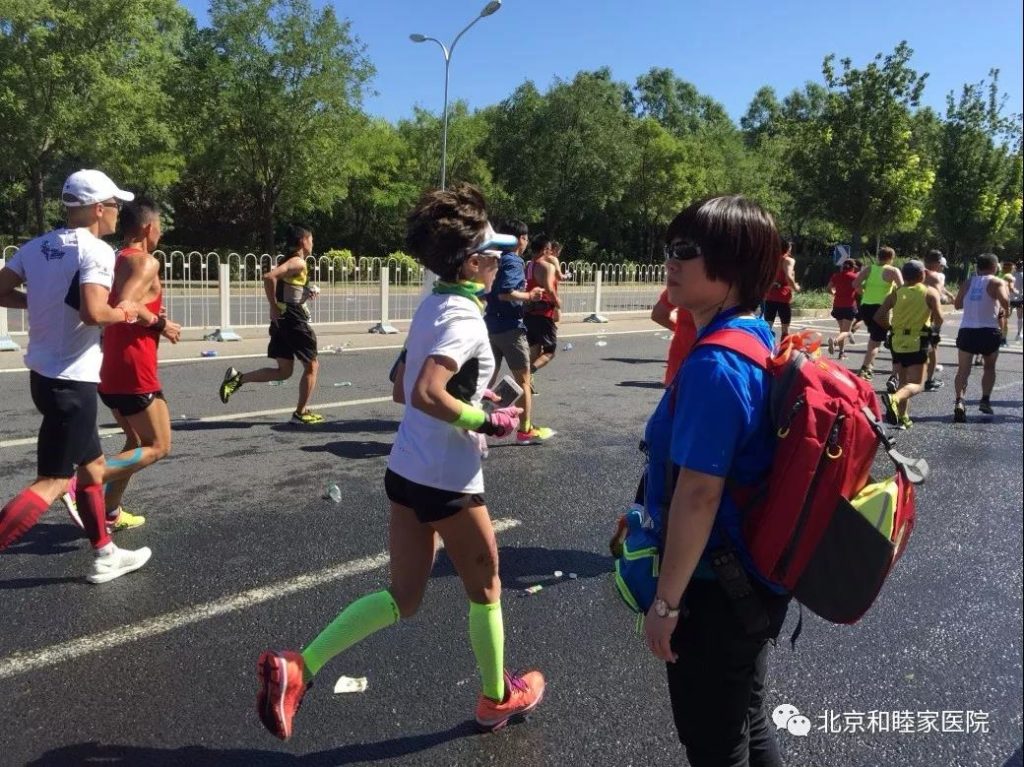
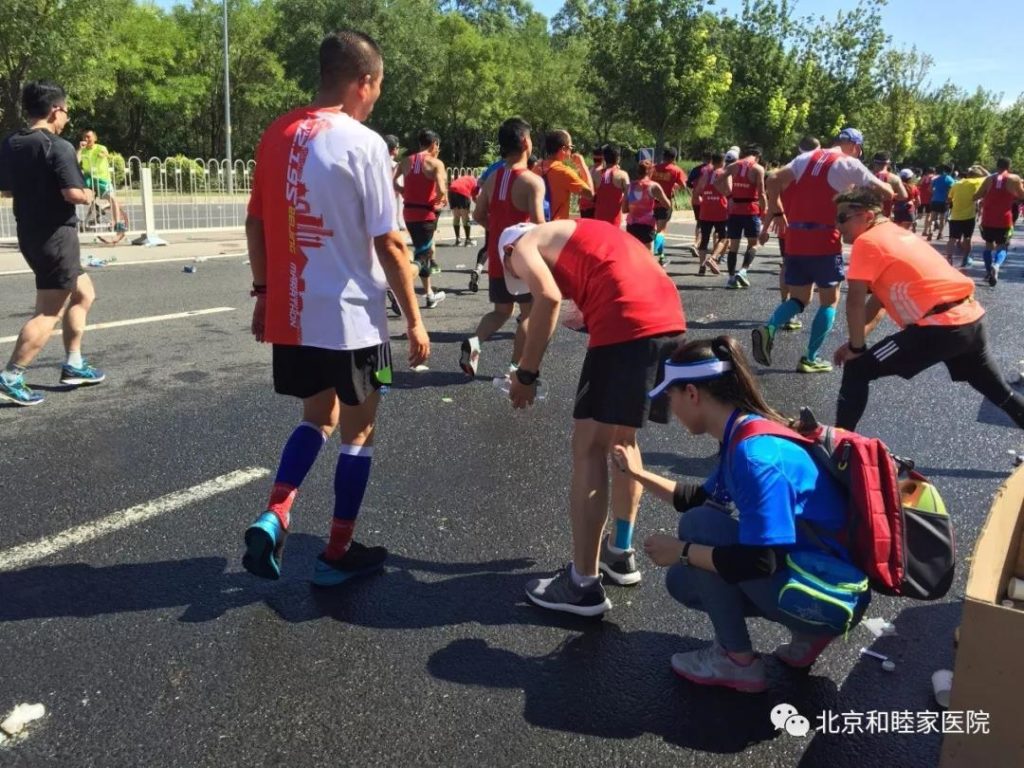
Despite heavy responsibilities, high professionalism and long working hours, all the 50 UFH AED volunteers completed the task successfully and assisted the medical service stations to help the runners.
Medical staff capable of bilingual services in the VIP area reflect the world-class quality services of UFH
Along with growing international influence, Beijing Marathon has become a calling card for Beijing that has attracted an increasing number of foreign runners. This year, runners from 42 countries and regions took part in the race and both men’s and women’s champions were foreigners. In addition, a VIP service area was set up this year at the destination section, with doctors from the Orthopedics Department, Emergency Department and Rehabilitation Medicine Department of Beijing UFH to provide medical services to foreign runners. All the doctors, nurses and volunteers from Beijing UFH could provide fluent bilingual or multilingual services, including English, French, and Spanish among others. They not only bridged international runners with Beijing medical service, but also showcased the world-class quality of Beijing medical services.
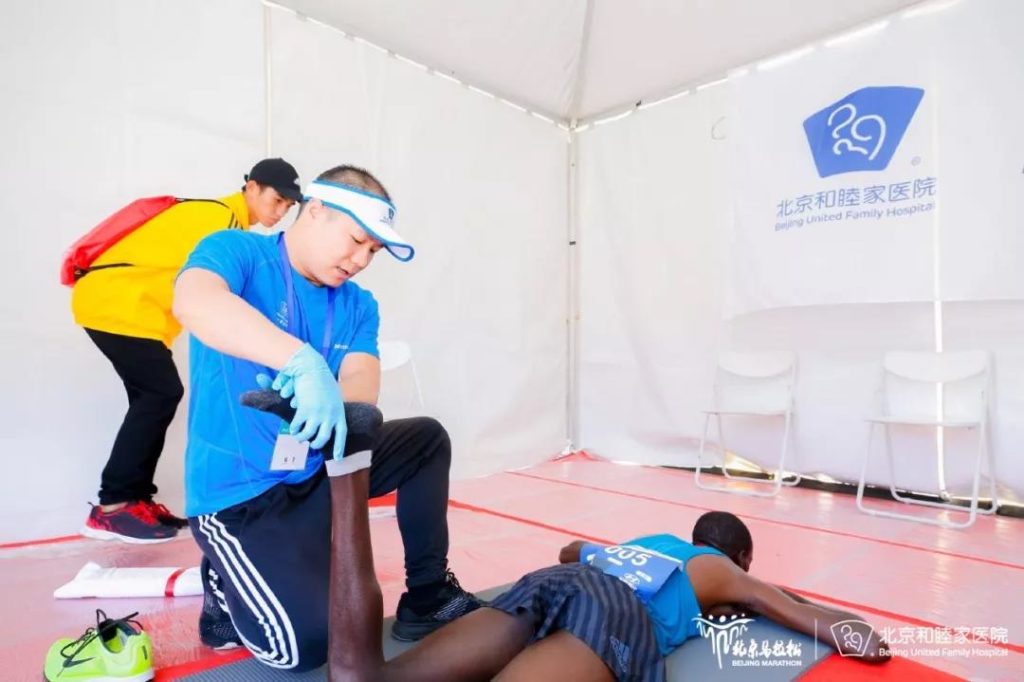
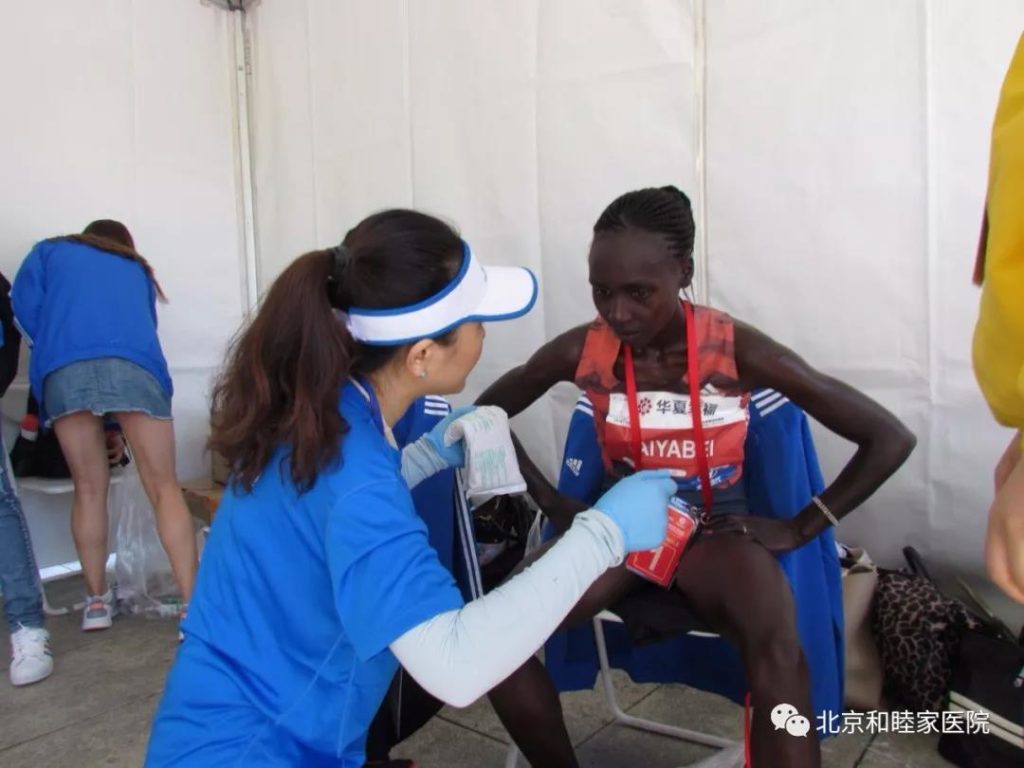
“Caring for you, RUN for your health”. Beijing Marathon 2018 concluded perfectly. United Family Hospital is looking forward to another rendezvous with you for the Beijing Marathon in 2019!
